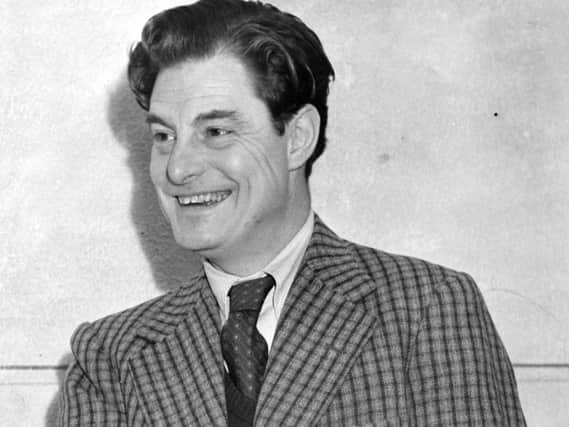Blackpool Grand Theatre: Remembering the film stars of the 1940s


Robert Donat had won the 1940 Best Actor Oscar for Goodbye Mr Chips and Rex Harrison was also starring in cinemas, with Margaret Lockwood in the spy thriller Night Train to Munich.
Donat (1905-1958) was born in Withington, Manchester, when it was in Lancashire.
Advertisement
Hide AdAdvertisement
Hide AdHis portrayal of schoolmaster Mr Chipping had beaten Clark Gable’s Rhett Butler in the epic Gone With the Wind, for the Oscar.
At the Grand for the week of October 7, Donat starred as Richard Dudgeon in the Old Vic Company’s production of The Devil’s Disciple, Bernard Shaw’s drama of mistaken identity, set in the American War of Independence.
The Gazette said he gave “a fascinating and unforgettable performance” and had a four minute standing ovation.
The October week at the Grand was on a tour after a short season London.
Advertisement
Hide AdAdvertisement
Hide AdRex Harrison (1908-1990) was born in Huyton, Liverpool, when it was in Lancashire. His stage career expanded into films.
When he came to the Grand for the week of December 23 he starred with Diana Wynyard in an American play called No Time for Comedy. They had both been at the Grand in September, 1939, in Noel Coward’s Design for Living.
The Grand in 1940 wasn’t short of big names in plays: Yvonne Arnaud, Alec Guinness, Alistair Sim, Emlyn Williams, Jack Buchanan and James Mason.
In March, a few hours after James Mason had opened in a medical drama titled Jupiter Laughs, an unscripted drama hit the theatre.
Advertisement
Hide AdAdvertisement
Hide AdThe night shift of cleaners found a section of seating on fire in the gallery.
Firemen racing down Church Street saw smoke coming from the roof, giving the impression the theatre was well alight. However, the blaze was quickly extinguished and the theatre was able to open on Tuesday night.
Another bit of unintended drama in 1940 was what we could call The Case of the Wartime Censor.
The Grand staged its first summer season revue, starring South Shore’s Harry Korris and Poulton’s Tessie O’Shea.
Advertisement
Hide AdAdvertisement
Hide AdIt opened in Saturday, June 22, with the clever title Blackpool One, which was the theatre’s telephone number. It was reviewed in Monday’s Gazette with that title.
Too clever by half! The next night the name changed to It’s A Funny Thing. The local censor had woken up to the fact that the name Blackpool on theatre posters would give German spies their location.
The “arts story” of 1940 concerned the December week’s visit by the Sadlers Wells Ballet.
Their tour had been forced by the requisition of their London theatre as a relief centre for victims of the German bombing blitz.
Advertisement
Hide AdAdvertisement
Hide AdThey had no scenery and no orchestra but had a great complement of stars – Margot Fonteyn, Frederick Ashton, Robert Helpmann, Pamela May, June Brea and Michael Somes.
They performed three programmes of short ballets accompanied on two pianos by their musical director Constant Lambert and a rehearsal pianist.
The star parade would continue through the war years as more shows were moved out of London and Blackpool’s enlarged wartime population sought amusement.